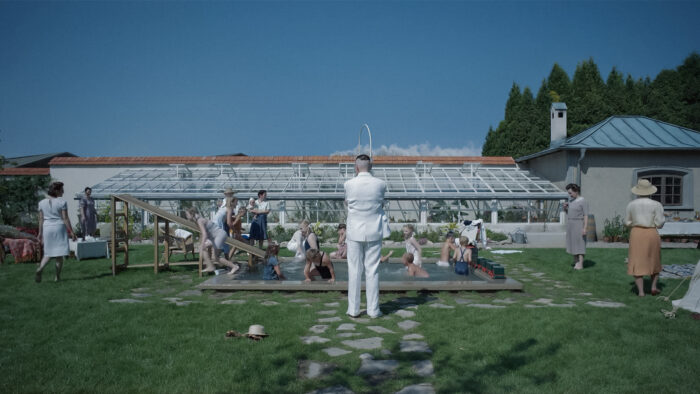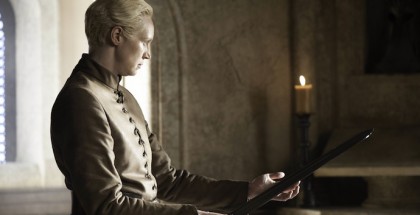The Zone of Interest: A chilling portrait of the banality of evil
Review Overview
Glazer's direction
10Sandra Hüller
10Sound design
10Matthew Turner | On 07, Mar 2024
Director: Jonathan Glazer
Cast: Christian Friedel, Sandra Hüller, Medusa Knopf, Daniel Holzberg, Sascha Maaz, Max Beck
Certificate: 12
Directed by Jonathan Glazer (Under the Skin), this Oscar-nominated house-next-door-to-Auschwitz drama is loosely adapted from the novel by Martin Amis. Strikingly shot and impeccably directed, it’s a provocative and deeply chilling portrait of the banality of evil. It’s also one of the best films of 2024.
There’s no real plot to speak of. The film centres on Auschwitz camp commandant Rudolf Höss (Christian Friedel), who lives with his wife, Hedwig (Sandra Hüller), their children and various servants in a beautiful home that is literally next door to Auschwitz – separated by a gleaming high white wall, topped with barbed wire. The majority of the film depicts their day-to-day domestic life, whether it’s having Hedwig’s mother to stay, gossiping with other Nazi wives, having parties in their lavish garden or going for a swim in the local river.
However, there are occasional hints at the true horror next door, most notably when Rudolf spots human remains in the river while the children are bathing and hurriedly shoos them into the house for a good scrubbing. Meanwhile, tension arises when Rudolf receives a promotion that means he has to transfer to head office, near Berlin, and Hedwig makes it very clear that she will be staying where she is, thank you very much, as the house next door to Auschwitz is the best place to raise the children.
As we watch the family go about their daily business, we’re constantly reminded of the evil that is just out of sight, whether it’s the image of a chimney belching thick black smoke, the amount of ash that falls into the garden, the occasional gunshot or scream, or the low rumble of machinery that’s always in the background. To that end, the sound design by Johnnie Burn is simply extraordinary, particularly when coupled with Mica Levi’s exceptional and deeply unsettling score.
Essentially, Glazer makes the same point over and over again – contrasting the seemingly oblivious domestic reality with the unseen brutality unfolding just over the wall – but does it brilliantly, and the cumulative impact is powerfully chilling. At a certain point we marvel at the sheer levels of compartmentalisation going on, and we start scouring the faces and turning over the dialogue for clues as to just how much the characters really know. Hedwig’s reaction to her mother quietly leaving the house in the middle of the night, for example, is extremely revealing, because she understands that her mother cannot share her own level of denial.
Glazer fills the film with tiny moments that quietly underscore the horror, some of which are all the more devastating for being so beautifully understated, such as when Hedwig loses her temper: as she stamps through the hallway, you suddenly become aware that the Polish maid is standing stock still in the shadows, like a statue, clearly petrified of drawing attention to herself.
Friedel and Hüller are both superb in the lead roles, affecting a coldness that never quite gives away what might be lurking under the surface. This is aided, in part, by the fact that Glazer hardly ever shows them in close-up, so the moments when we do catch a glimpse of their internal life hit that much harder.
This is a stunningly directed and impressively conceived drama that will chill you to your core. It’s also depressingly relevant, asking uncomfortable questions about the lengths we’ll go to in order to avoid confronting real-life horrors that are unfolding under our noses.



















